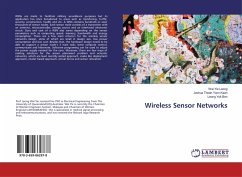There is a growing need for compact devices that can interoperate with each other wirelessly and offer a wide range of applications. Wireless data transfer is normally being preferred to transmission of data via cables. In addition, consumers like using devices that save power because it leads to low cost. With the intention of meeting the consumer s needs, ZigBee Alliance developed a ZigBee wireless protocol which offers low power, low cost, reduced resource requirement and a standard set of specification. ZigBee permits inter-working capability between its devices from different products, since it is standard compliant. ZigBee network performance was analyzed in this project, by carrying out experiments in an indoor environment. A comparison was done between ZigBee and a proprietary standard called MiWi wireless protocol, to reinforce ZigBee implementation. RSSI and Average Delay performance indicators were used for the analysis done. Results showed that data loss was reduced in ZigBee than MiWi. In addition, the results obtained showed that ZigBee was designed for longer distance communication as compared to MiWi.
Bitte wählen Sie Ihr Anliegen aus.
Rechnungen
Retourenschein anfordern
Bestellstatus
Storno








